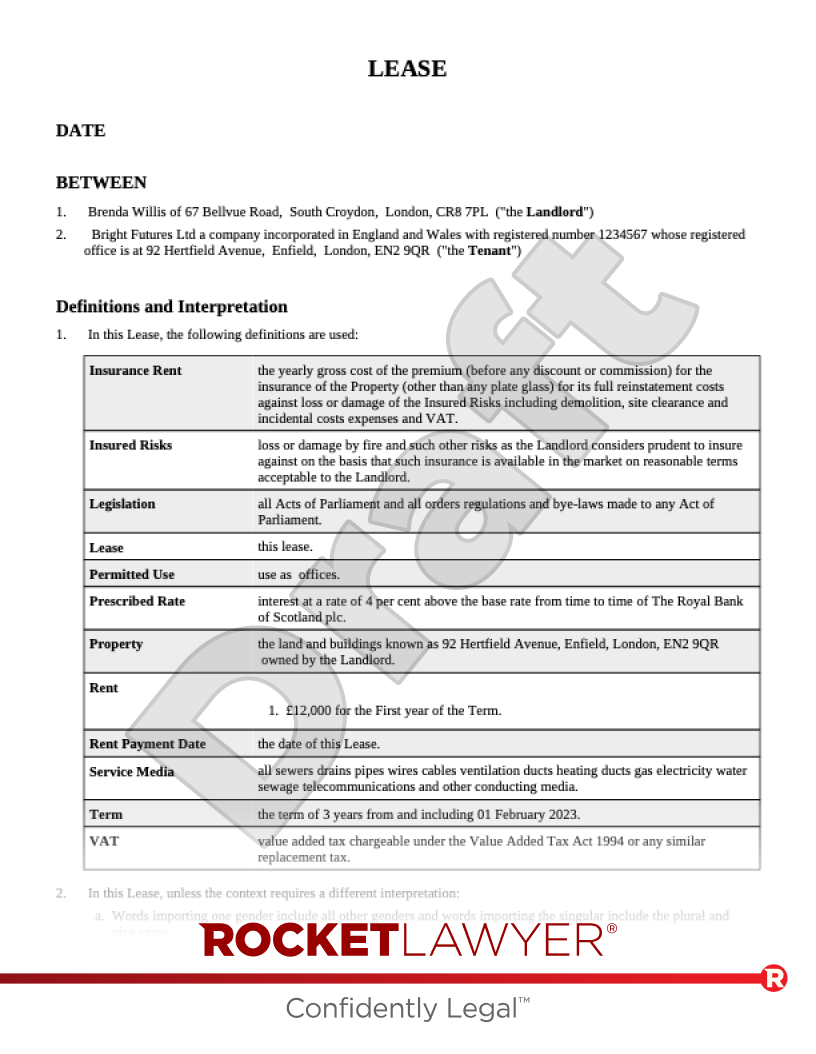What is rent review?
Rent reviews allow landlords of commercial property to periodically adjust the rent charged to tenants based on various factors.
As a landlord, you will want to review the rents charged for your properties as set out in the relevant Commercial leases. Doing so will increase your rental income and profitability.
As a tenant, you will want to minimise your costs, so proper negotiation and representation during rent reviews will be important.
Why do commercial leases have rent review clauses?
Where market rent is payable, (ie an amount of rent that’s similar to that charged for other similar properties, eg those in the same area), a landlord will want to ensure that they always receive the maximum possible rent for their premises and are not bound by the rent amount which was set at the start of the lease.
How can rent be reviewed?
There are various ways in which the rent can be reviewed:
-
a stepped rent review (the landlord and tenant might agree to increase the rent in fixed amounts each year)
-
a turnover rent review (the landlord and tenant might assess the rent based on the tenant's turnover at the premises)
-
an open market rent review (ie the rent is assessed in relation to market values)
The most common type of rent review is the open market rent review.
How often do rent reviews occur?
Typically rent reviews occur every 3-5 years, depending on the length of the relevant lease. A rent review clause in a commercial lease will dictate how often a rent review will occur, as well as the method and procedure for the review and how to deal with disputes.
How is the value of the rent decided?
Open market rent review involves a periodic revaluation of the rent based on what the rent would be if the premises were re-let fresh at the date of review (eg would the rent have increased if a new lease was created?).
The new rental amount is based on rents in the local market for similar leases ('comparable premises'). If after the review it's found that rents in the local area have increased,the rent for the premises can be increased.
In most situations, the landlord and tenant should try and agree on the new rent between themselves. Both parties usually appoint their their own property surveyors property surveyors to help manage the process and negotiations.
The use of a premises can have a significant effect on an open market rental value. If a lease allows a tenant to use premises for a variety of purposes, the open market rental value will generally be calculated as if they are being used for their most valuable purpose.
For example, if office rents are higher than rents for storage space and the lease allows the use of the premises to be either offices or storage, the rent will be calculated as if the premises were offices.
What happens if the landlord and tenant can't agree on a rent increase?
If both parties can’t agree on a new rate, there are established dispute resolution processes and arbitration systems in place.
Some leases may contain Alternative Dispute Resolution (ADR) provisions, which means that a third party can be appointed to make an independent decision on whether to impose a new rent or keep the rent the same.
If the parties are in disagreement, or if ADR is being used, the rent continues to be paid at the old rate until a new rent has been agreed. Once the new amount is agreed upon, the new rent may be backdated to the review date. This means that the tenant may need to pay the difference between the old rent and the new rent to the landlord. Interest can also be charged on this difference.




